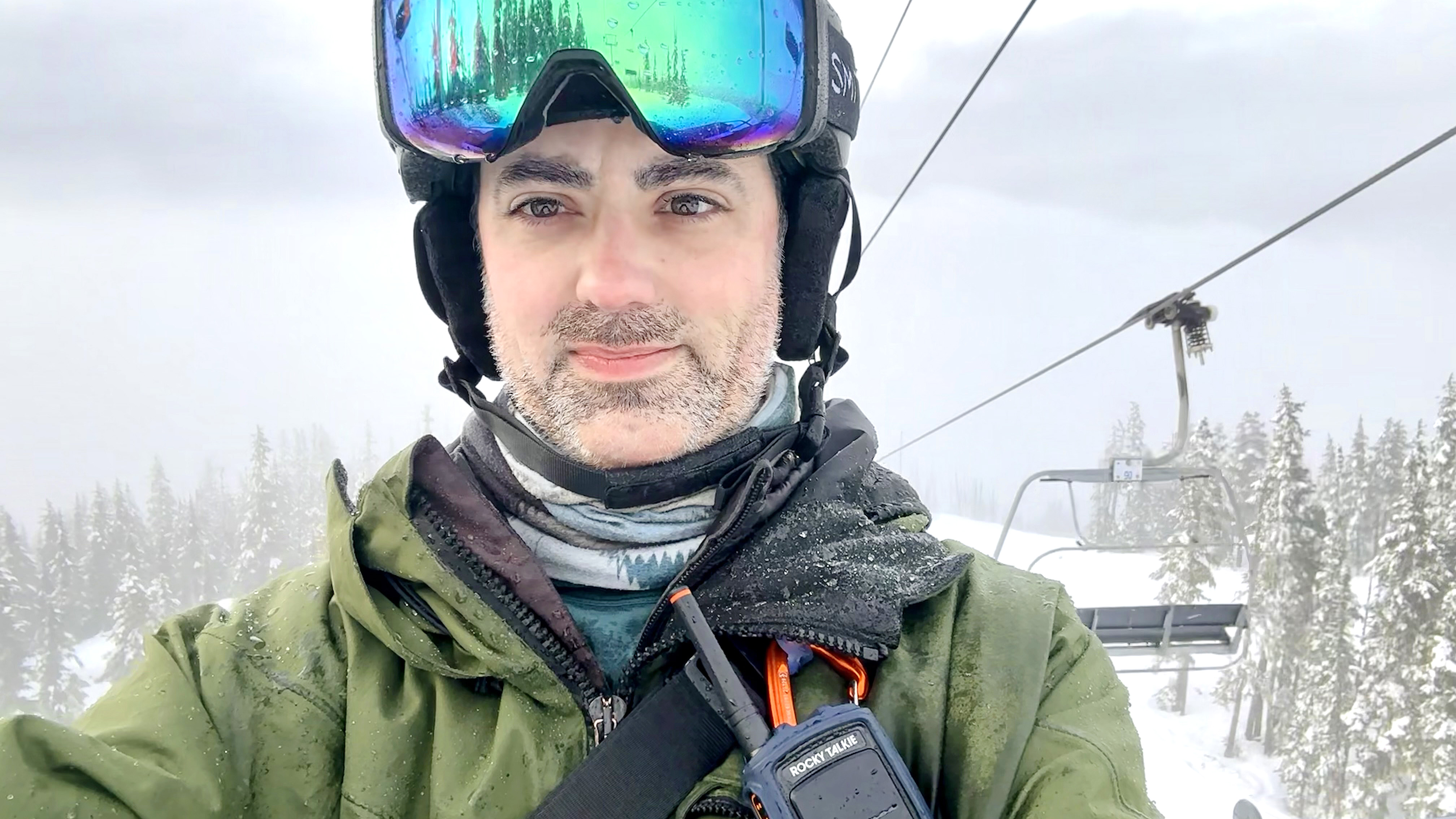Is it illegal to circumvent age verification checks?
New laws require sites to introduce age verification checks, but is getting around them illegal?

Here at Tom’s Guide our expert editors are committed to bringing you the best news, reviews and guides to help you stay informed and ahead of the curve!
You are now subscribed
Your newsletter sign-up was successful
Want to add more newsletters?

Daily (Mon-Sun)
Tom's Guide Daily
Sign up to get the latest updates on all of your favorite content! From cutting-edge tech news and the hottest streaming buzz to unbeatable deals on the best products and in-depth reviews, we’ve got you covered.

Weekly on Thursday
Tom's AI Guide
Be AI savvy with your weekly newsletter summing up all the biggest AI news you need to know. Plus, analysis from our AI editor and tips on how to use the latest AI tools!

Weekly on Friday
Tom's iGuide
Unlock the vast world of Apple news straight to your inbox. With coverage on everything from exciting product launches to essential software updates, this is your go-to source for the latest updates on all the best Apple content.

Weekly on Monday
Tom's Streaming Guide
Our weekly newsletter is expertly crafted to immerse you in the world of streaming. Stay updated on the latest releases and our top recommendations across your favorite streaming platforms.
Join the club
Get full access to premium articles, exclusive features and a growing list of member rewards.
With the introduction online age checks, like that of the Online Safety Act in the UK or House Bill 2112 in the US, citizens will now need to verify their age in order to access explicit content.
Age verification techniques can vary between platforms, from scanning a photo ID to inputting your payment card details. however, not all citizens are willing to comply with the act, citing concerns regarding data privacy and safety.
Some are turning to workarounds, like the best VPNs, to circumvent the age verification checks and avoid submitting their personal or sensitive information in order to access content restricted by these laws.
Why have sites introduced age verification?
The Online Safety Act itself requires websites and social media platforms to introduce greater controls on the content hosted on their platforms, including requiring age checks to view adult content.
As per the Act, all "search services and services that allow users to post content online or to interact with each other" must abide by the Online Safety Act and ensure that appropriate age restrictions are set, to avoid children accessing harmful content. This includes sites such as Reddit, X and even Spotify have introduced age checks for users.
For sites or platforms that host explicit content, this must include "technically accurate, robust, reliable and fair" age verification checks.
It is also illegal for sites and platforms to promote circumventing the OSA, with legal action already being taken against a site which directly told users to use a VPN in order to get around the age verification check.
If any sites violate the law, they can be fined up to £18m (roughly $24m) or 10% of their qualifying worldwide revenue, whichever is greater. In the case of more serious violations, they could face court-imposed sanctions from third-parties like internet providers leading to the entire site or platform being blocked or restricted in the UK.
Meanwhile, House Bill 2112 (the Bill concerning age verification in Arizona), states that "reasonable age verification methods" must be used if more than one third of a site's content could be considered to be "harmful to minors."
The bill also says that "individual's identifying information" mustn't be transmitted – either directly or indirectly – to any "federal, state, or local government entity." Government-issued ID or "a commercially reasonable method" may be used to verify age, but the age-verification service must not "retain any identifying information of the individual."
If any companies don't comply with the bill, they can be fined, and they can also be subject to legal action from the parents of minors who access harmful material.
Additionally, anyone whose information is retained or transmitted as a result of "an entity's violation" of the bill has a "right of action against the offending entity."
Sites that violate age verification requirements can face $10,000 per-day penalties. Additionally, sites that violate identifiable information retention and transmission rules can face penalties of $10,000 per instance.
Additionally, penalties of up to $250,000 can be given if a minor accesses harmful content as a result of these violations.
Is it illegal to circumvent age verification?
So, while the OSA and House Bill 2112 have clear rules for websites and social media platforms, it does not introduce any laws for individual citizens.
So, if citizens do choose to use a VPN to avoid age verification checks, this is not illegal. In fact, the head of OFCOM, Melanie Dawes, told UK MPs in May that “individual users can use VPNs" as "nothing in the Act blocks it", although she did point out that OFCOM takes a "very dim view" of the promotion of using VPNs to circumvent age verification.
However, while the OSA does not provide any guidelines for internet users themselves, members of the UK government have made statements regarding VPN use to circumvent age verification.
Labour Party Tech Secretary Peter Kyle has said that the Online Safety Act "marks the most significant step forward in child safety since the internet was created" and that "age verification keeps children safe". Kyle also stated via X that those who want to overturn the Online Safety Act are "on the side of predators".
While some concerns were raised about the UK government banning VPNs due to their ability to circumvent age checks, Kyle has also said that there are no plans to ban VPNs.
We test and review VPN services in the context of legal recreational uses. For example: 1. Accessing a service from another country (subject to the terms and conditions of that service). 2. Protecting your online security and strengthening your online privacy when abroad. We do not support or condone the illegal or malicious use of VPN services. Consuming pirated content that is paid-for is neither endorsed nor approved by Future Publishing.

Olivia joined Tom's Guide in October 2023 as part of the core Tech Software team, and is currently VPN Commissioning Editor. She regularly uses VPNs to make sure they deliver what they promise, and specializes in testing VPNs with streaming sites.
You must confirm your public display name before commenting
Please logout and then login again, you will then be prompted to enter your display name.
 Club Benefits
Club Benefits





